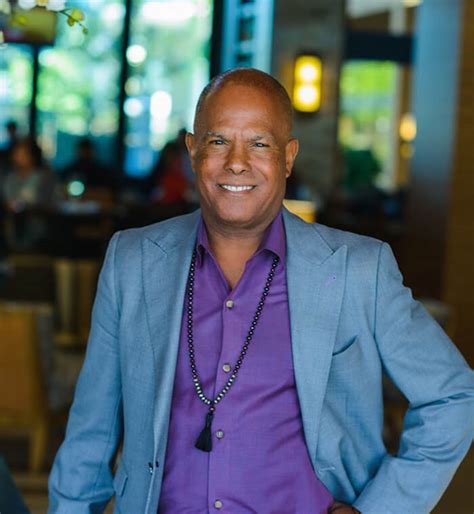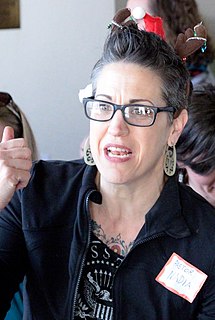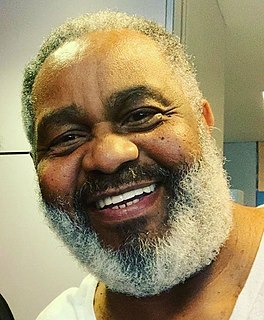A Quote by Michael Beckwith
Silently repeat to yourself: I forgive myself for any ways in which I knowingly or unknowingly caused hurt or harm to any living being or creature. I forgive all who have ever hurt or harmed me. Everything between us is now cleared up.
Related Quotes
We hurt each other, is the point. Hurt, annoy, embarrass, but move on. People, it just doesn't work that way. Your own feelings get so complicated that you forget the ways another human being can be vulnerable. You spend a lot of energy protecting yourself. All those layers and motivations and feelings. You get hurt, you stay hurt sometimes. The hurt affects your ability to go forward. And words. All the words between us. Words can be permanent. Certain ones are impossible to forgive.
They say that when god was in Jerusalem he forgave his murderers, but now he will not forgive an honest man for differing with him on the subject of the Trinity. They say that God says to me, "Forgive your enemies." I say, "I do;" but he says, "I will damn mine." God should be consistent. If he wants me to forgive my enemies he should forgive his. I am asked to forgive enemies who can hurt me. God is only asked to forgive enemies who cannot hurt him. He certainly ought to be as generous as he asks us to be.
Forgive yourself for not being the richest, the thinnest, the tallest, the one with the best hair. Forgive yourself for not being the most successful, the cutest or the one with the fastest time. Forgive yourself for not winning every round. Forgive yourself for being afraid. But don’t let yourself off the hook, never forgive yourself, for not caring or not trying.
Forgiving is an affair strictly between a victim and a victimizer. Everyone else should step aside...The worst wounds I ever felt were the ones people gave to my children. Wrong my kids, you wrong me. And my hurt qualifies me to forgive you. But only for the pain you caused me when you wounded them. My children alone are qualified to forgive you for what you did to them.
We forgive, if we are wise, not for the other person, but for ourselves. We forgive, not to erase a wrong, but to relieve the residue of the wrong that is alive within us. We forgive because it is less painful than holding on to resentment. We forgive because without it we condemn ourselves to repeating endlessly the very trauma or situation that hurt us so. We forgive because ultimately it is the smartest action to take on our own behalf. We forgive because it restores to us a sense of inner balance.
Holding anger is a poison. It eats you from the inside. We think that hating is a weapon that attacks the person who harmed us. But hatred is a curved blade. And the harm we do, we do to ourselves. Forgive, Edward. Forgive...no one is born with anger. And when we die, the soul is freed of it. But now, here, in order to move on, you must understand why you felt what you did, and why you no longer need to feel it.' She touched his hand. 'You need to forgive your father.' ~pgs 141-142
What is forgiving? Forgiving is giving up all claim on one who had hurt you and letting go of the emotional consequences of the hurt. How can we do that? It's done at the price of beating back our pride. By nature we are selfish. Forgiving, by definition, is unselfish. Being hurt by another person wounds our pride. Pride stands in the way of forgiving. We cannot forgive without God's help. It might be possible for us to forgive something inconsequential without God's help; but in significant matters, we are unlikely to accomplish anything without God's involvement in the process.
Trust in someone means that we no longer have to protect ourselves. We believe we will not be hurt or harmed by the other, at least not deliberately. We trust his or her good intentions, though we know we might be hurt by the way circumstances play out between us. We might say that hurt happens; it’s a given of life. Harm is inflicted; it’s a choice some people make.
You must forgive everyone. Now many would say that "We cannot forgive, it's very difficult." But it's a myth whether you forgive or don't forgive. What do you do? You don't do anything. But when you don't forgive, then you are playing into wrong hands. That means you are torturing yourself, while those who have troubled you are quite happy.
Forgive yourself for believing things about yourself that are not true. Forgive yourself for believing that you were anything other than a child of God. Then, after forgiving yourself for believing the things you were told, forgive the people who told you. Forgive them not for what they said or did. Forgive them because they did not know any better.
Sometimes people hurt us unintentionally. We may view that they've hurt us intentionally and want revenge. But sometimes when we really look back again, we can see that they weren't intentional in trying to hurt us. That's when we need to confess our judgment of them and forgive them for their unintentional hurts committed against us.



































